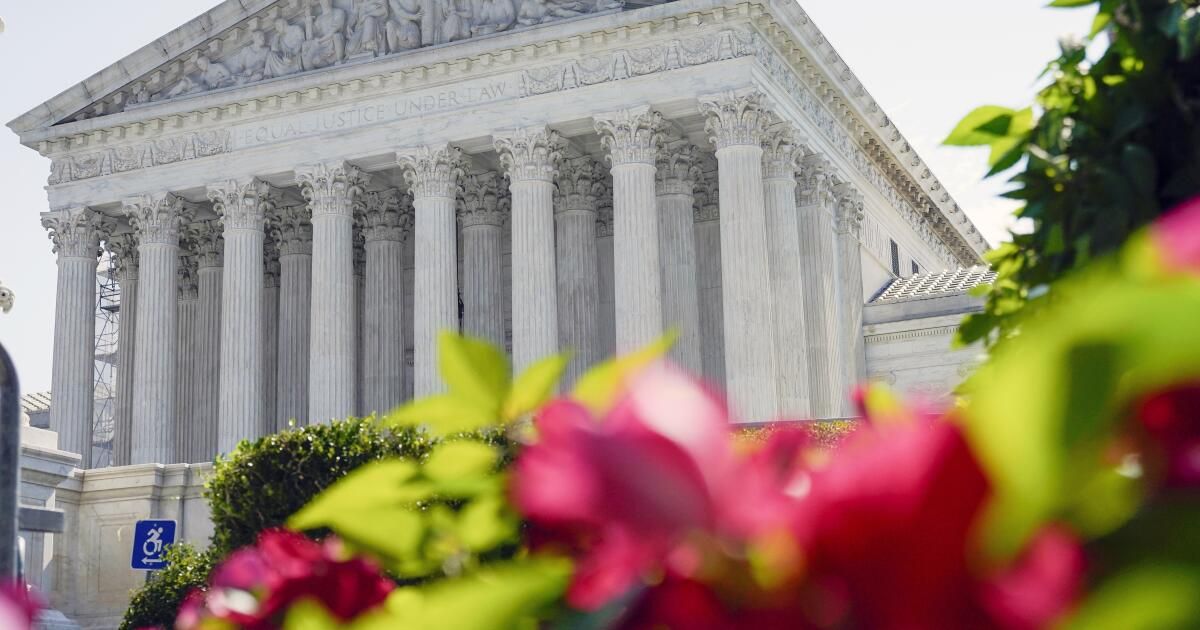The Supreme Court on Wednesday dismissed claims that the Biden administration has been censoring conservatives by pressuring social media sites to remove dangerous misinformation.
In a 6-3 decision, the justices dismissed a lawsuit by state attorneys in Louisiana and Missouri, saying they had no standing to bring such claims.
Social media sites that were said to be targets of the federal pressure campaign did not sue or complain that their rights were violated.
Judge Amy Coney Barrett, writing for the courtHe said Republican officials and other conservative critics did not demonstrate that Facebook and other social media sites removed posts due to pressure from Washington, nor were they likely to do so in the future.
Justice Samuel A. Alito Jr. filed a 34-page dissent. If what the plaintiffs said is true, he said, “this is one of the most important free speech cases to come before this court in years.” Justices Clarence Thomas and Neil M. Gorsuch agreed.
The ruling rules out a broad injunction issued last year by a federal judge in Louisiana and upheld by the Fifth Circuit Court of Appeals that threatened hundreds of Biden administration officials with a contempt citation if they “significantly encouraged” a platform to remove any content.
The case highlighted a common complaint on the right that conservatives and their views are being dismissed or “censored” on social media.
Republican state attorneys in Missouri and Louisiana had alleged that the Biden administration's “sweeping federal censorship enterprise” was violating the right to free speech in this country. They pointed to actions by the White House, as well as the FBI, the Office of the Surgeon General and the Centers for Disease Control and Prevention.
In October, in response to an appeal from Attorney General Elizabeth Prelogar, the justices stayed the Louisiana judge's order by dissenters Thomas, Alito and Gorsuch.
The justices agreed to hear arguments and rule on the First Amendment issue raised in Murthy v. Missouri.
This term, the court has heard three major cases about social media and the First Amendment, all motivated by complaints from conservatives that their speech is being censored.
Still pending before the court is a First Amendment challenge to new, never-enforced laws in Texas and Florida that would fine or penalize popular social media sites for removing conservative posts.
The case decided Wednesday began with a complaint that social media platforms had blocked or demoted posts on topics such as “the COVID-19 lab leak theory, pandemic lockdowns, vaccine side effects, fraud election and the story of the Hunter Biden laptop.”
State prosecutors took their complaint to U.S. District Judge Terry Doughty, a Trump appointee in Monroe, Louisiana.
He issued an unusually far-reaching order prohibiting federal officials and agencies from “urging or encouraging” the removal of “protected speech” from social media. He described the administration's conduct as “arguably…the most massive attack on free speech in American history.”
The administration appealed to the Fifth Circuit Court in New Orleans, but lost.
A three-judge panel said that administration “officials have engaged in a broad pressure campaign designed to force social media companies to suppress speakers, views and content unfavorable to the government. The damage that results from such conduct goes much further. … It affects all social media users.”
Justices, including their conservatives, have been skeptical of the Fifth Circuit's approval of broad lawsuits based on questionable claims of standing.
Two weeks ago, the justices, by a vote of 9 to 0, dismissed a lawsuit brought by anti-abortion doctors seeking to overturn the Food and Drug Administration's approval of abortion pills. A federal judge in West Texas and the Fifth Circuit Court had said the plaintiffs had standing, even though they did not perform abortions or prescribe the pills.












